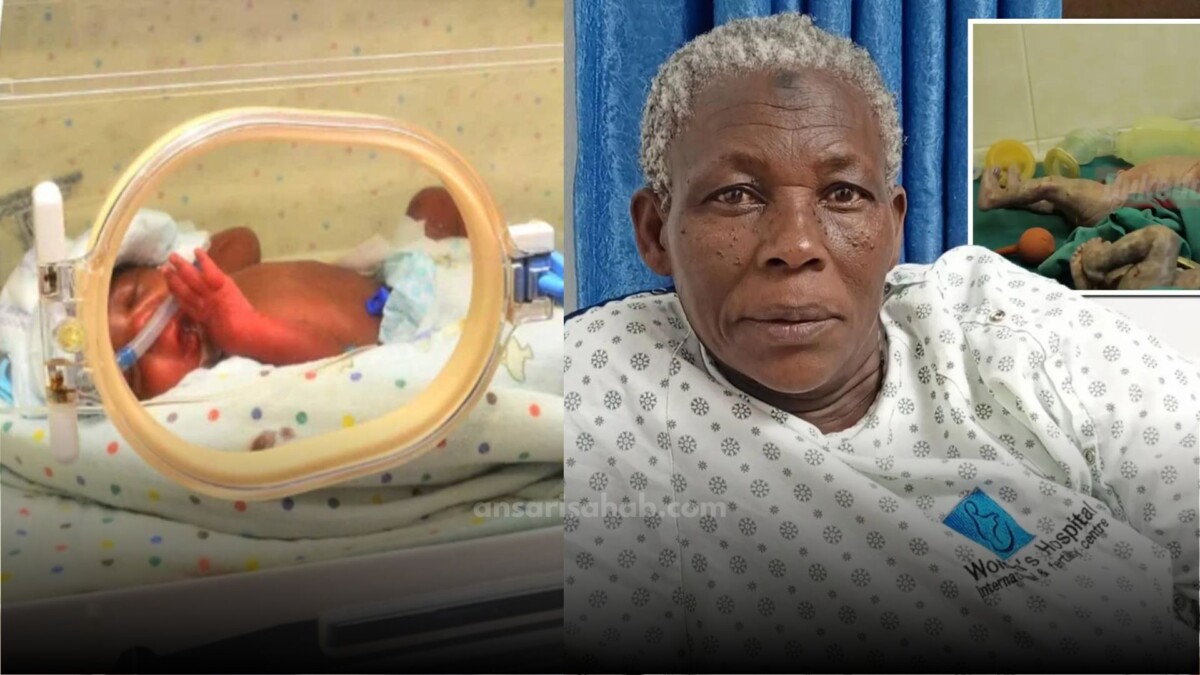In a heartwarming tale that has captivated the world, Safina Namukwaya, a resilient 70 year old woman from Uganda, has defied the odds to become one of the oldest mothers through the marvels of in vitro fertilization (IVF). Her extraordinary journey to parenthood showcases the power of modern reproductive technology and the unyielding human spirit.
A Long-Awaited Dream
Namukwaya’s path to motherhood was marked by perseverance and determination. Faced with the challenges of infertility, she and her husband embarked on a journey seeking medical assistance. Despite years of longing for children, natural conception remained elusive, leading them to explore the possibilities offered by assisted reproductive technology (ART).
With unwavering resolve, Namukwaya opted for IVF, a groundbreaking procedure involving the fertilization of eggs outside the body, followed by the implantation of embryos into the uterus. This marked a pivotal moment for Namukwaya, offering a glimmer of hope in her quest for motherhood.
A Blessing in Disguise
After enduring a period of anxious anticipation, Namukwaya’s IVF treatment yielded a double blessing – she was pregnant with twins. The news filled her with immense happiness and gratitude, representing the realization of a lifelong dream. However, the journey was not without its challenges, given the increased risks associated with pregnancy and childbirth at her advanced age.
A Triumphant Delivery
On November 24, 2023, at the Women’s Hospital International and Fertility Center in Kampala, Namukwaya underwent a caesarean section, bringing her long-awaited dream to fruition. The birth of her twin daughters not only marked a personal triumph but also stood as a testament to the advancements in ART and the unwavering hope of parenthood.
Celebrating Life
The arrival of Namukwaya’s twins has become a source of immense joy and love for her family and the Nabunya community. Well-wishes and support have poured in, creating a celebration that transcends borders.
Global Conversation on ART Ethics
Namukwaya’s story has ignited a global conversation surrounding the ethics and implications of ART, especially for older women. While some express concerns about the potential health risks associated with advanced age pregnancies, others emphasize the importance of individual autonomy and the right to pursue parenthood regardless of age.
Suggested : Understanding and Confronting Antisemitism: The Goldie Restaurant Protest Fallout in Philadelphia
Access to Quality Healthcare and Fertility Treatment
Namukwaya’s case highlights the significance of access to quality healthcare and fertility treatment, particularly in developing countries. Improved access could empower more women to make informed decisions about their reproductive health and family planning, bridging gaps in healthcare disparities.
Conclusion
Safina Namukwaya’s remarkable journey stands as a beacon of hope and inspiration, challenging societal norms and preconceptions about age and parenthood. Her story underscores the transformative power of modern medicine, celebrating the enduring spirit of human hope. As we rejoice in the arrival of Namukwaya’s twins, we recognize the profound impact of her journey on the global discourse surrounding age, fertility, and the ethical considerations of assisted reproductive technologies.
Additional Insights
Namukwaya’s case is part of a growing trend of women giving birth at advanced ages through IVF. Joining the ranks of other remarkable women, such as a 67-year-old in India and a 66-year-old in Spain, her story contributes to the ongoing dialogue on extending the reproductive lifespan.
Ethical considerations surrounding IVF for older women prompt discussions on the delicate balance between reproductive autonomy and potential health risks. Navigating these complexities will be crucial as advancements in reproductive technology continue to redefine the boundaries of fertility.
The future of fertility treatment holds promise for further advancements and accessibility, offering hope to individuals and couples worldwide. As the conversation evolves, it is essential to foster open dialogue, ethical considerations, and continued research to ensure the well-being of both mothers and children born through assisted reproductive technologies. Namukwaya’s journey serves as a catalyst for these discussions, leaving an indelible mark on the landscape of reproductive medicine.









